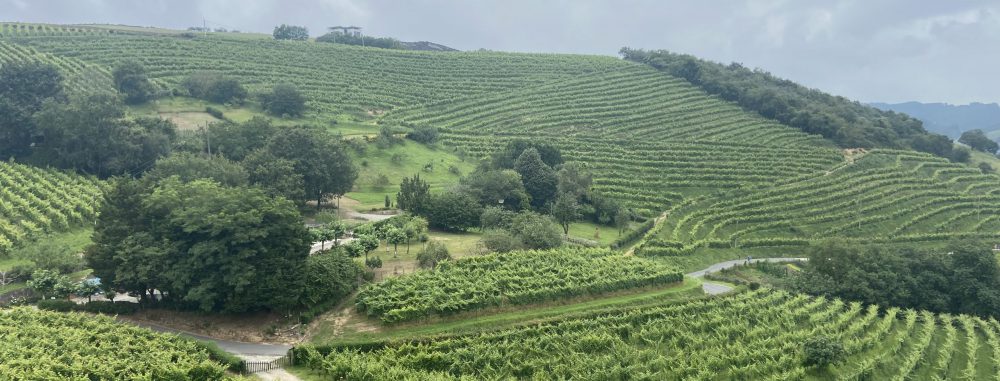There is an amazing uniqueness to the culture in the Basque Country in that it is unlike anything I’ve ever experienced before. Despite being geographically adjacent to the rest of Spanish culture, the Basques lead a very different life compared their neighbors, never mind the United States. While the United States is a melting pot of people from around the world looking for a fresh start exhibiting lots of diversity, the Basque Country is the complete opposite. The Basques, being a very small population, are very weary of outsiders. At first, they may be very cold towards new people, especially tourists. There’s even graffiti everywhere clearly displaying their dislike for them and telling them to leave, as it seems tourists take over the city most of the time. What I have found in my experience here (only three days so far), is that if you show you are making an effort and truly love the city, the locals can be very welcoming to you and want to share more of their beautiful home and incredible culture.
A huge part of the culture here is their cuisine, more specifically their pintxos and bars! People bond over food, whether it’s sharing a meal, cooking together, or just comparing favorite dishes and trying new things. The Basque people are no exception. They schedule their entire day around their eating habits. Here, we eat a small breakfast, quite a sizable lunch, and a smaller dinner. Because their largest meal is during the middle of the day, many places will close for a few hours for “siesta” before reopening. During this time, they go out with their coworkers, friends, and peers for about an hour or so to bars to relax, eat, socialize, and rejuvenate. This time definitely adds to the culture shock for Americans when they come to Spain as we are most used to eating very quick meals during our thirty minute breaks before delving back into our work.
Everything is much calmer and more informal with the Basques because they treasure their physical, emotional, and mental health over everything else. This sets a much more relaxed tone in the workplace, reducing stress and contributing to healthier and longer lives. Since the healthcare is free here for those who contribute to the Spanish social security system, that huge weight is lifted off their shoulders, and it isn’t something they have to worry about paying back later or whether they are able to afford certain treatments at the time. This is very refreshing coming from America where everything is so fast-paced and rushed most of the time, and we tend to prioritize money and work over our own health which results in very high stress levels and a lower life expectancy. So many people have to worry about being able to afford their medicine or treatment that they even consider not receiving the care they need to save the money.
Also contributing to the Basque’s long lives is their super fresh food. They live off the resources they have in the area, so where they can fish, they eat a lot of fish. In the more mountainous areas, they eat more sheep and pig because that is what is most readily available to them. Because the food is so fresh, it is not processed like in the United States. This lifestyle overall is a much healthier one, and there is definitely a lot to learn from the Basque culture. Hopefully, other countries can adopt similar ideologies as the Basques to create a better living environment and quality of life for their people!
